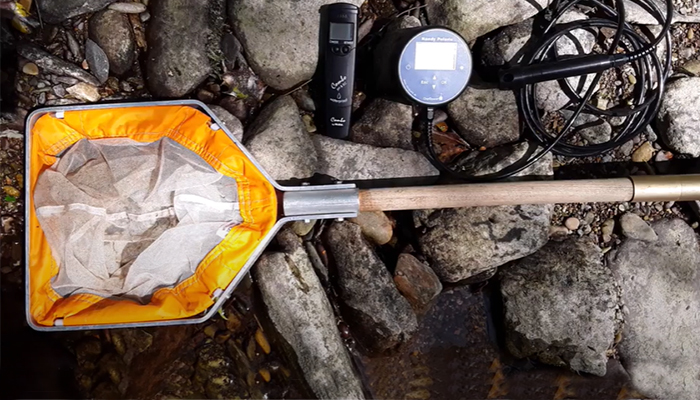22 March 2021
Using kick sampling to determine the quality of water in a river?

Macro-invertebrates are small aquatic animals such as insect larva, snails, worms, beetles etc and are excellent indicators of water quality. Where rivers are unpolluted these are in abundance. Scientists examine these macroinvertebrates by kick sampling, as LAWPRO catchment scientists demonstrate

Macro-invertebrates are small aquatic animals such as insect larva, snails, worms, beetles etc and are excellent indicators of water quality. Where rivers are unpolluted there is a great variety and abundance of these species. However, where a river has excessive amounts of nutrients and other pollutants, the numbers and types of macroinvertebrates is usually lower and many of the rare and sensitive species are absent.
Scientists can examine the macroinvertebrates that live in the bed of a river and the health of a river through a sampling process called kick sampling. Scientists sample the macroinvertebrates by kicking up the gravels on the bed of the river and catching everything that is disturbed in a net. Kick sampling is a relatively quick process, it can be completed on the riverbank at several locations and allow the scientists to move through the river system and examine water quality.
In this short clip, LAWPRO’s catchment scientists, Philip and Jim demonstrate kick sampling in a river in Co. Waterford
For more info see Water Quality Week
